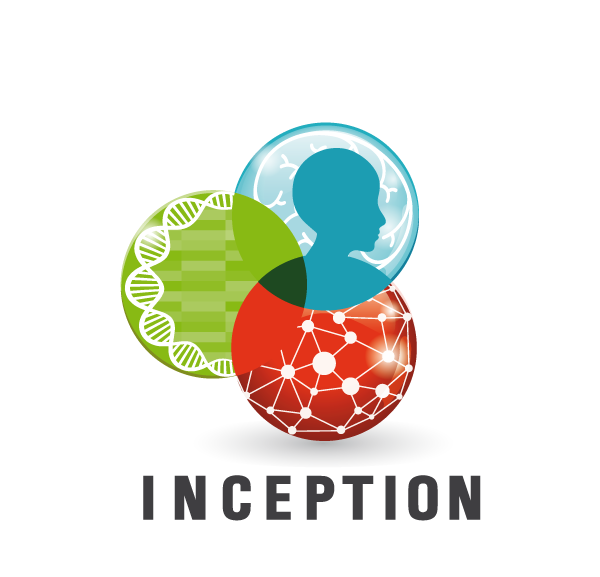


The workshop obtained the label Ecole thématique du CNRS 2022

Duration
This fourth edition of the school will be held from 09 January 2022 to 14th january 2022 at the Roscoff Biological Station (France).
Objectives
This workshop focuses on the large-scale study of heterogeneity across individual cells from a genomic, transcriptomic and epigenomic point of view. New technological developments enable the characterization of molecular information at a single cell resolution for large numbers of cells. The high dimensional omics data that these technologies produce raise novel methodological challenges for the analysis. In this regard, dedicated bioinformatics and statistical methods have been developed in order to extract robust information.
The workshop aims to provide such methods for engineers and researchers directly involved in functional genomics projects making use of single-cell technologies. A wide range of single cell topics will be covered in lectures, demonstrations and practical classes. Among others, the areas and issues to be addressed will include the choice of the most appropriate single-cell sequencing technology, the experimental design and the bioinformatics and statistical methods and pipelines. For this edition, new courses/practicals will focus on spatial transcriptomics, cell phenotyping and additional multi-omics.
Participants
This course is directed towards 30 engineers and researchers who regularly need to undertake single-cell data analysis as well as PhD candidates and Postdocs in computational biology or bioinformatics that are interested in the development of methods and pipelines for high dimension single-cell data analysis.
Working environment
Unix command will be used for bioinformatic analysis, and R programming language for statistical analysis.
Prerequisites
Participants must have prior experience on NGS data analysis with everyday use of R and good knowledge of Unix command line. Before the training, participants will be asked to familiarize themselves with the processing and primary analyses steps of scRNA-seq datasets with provided pedagogic material. Study material : Already working on his/her own single cell dataset is not mandatory.
Registration details
Deadline for pre-registration: September 15, 2021 (selection of participants: October 20, 2021). The number of places being limited (30 participants), the organizing committee will select the participants according to the information given during this pre-registration.
Registration fees
The registration fee includes accommodation and meals.
academic/university : 650 € HT = 780 € TTC (fee covered for CNRS personnel if the workshop is sponsored by CNRS. Information available mid-december 2021);
private sector: 1.750 € HT = 2.100 € TTC.
Scientific coordination: Marie-Agnès Dillies (Institut Pasteur Paris), Morgane Thomas-Chollier (IBENS CNRS UMR8197, ENS, INSERM U1024), Agnès Paquet (Syneos Health, Sophia-Antipolis), Nicolas Servant (Institut Curie, INSERM U900, Mines ParisTech), Marc Deloger (Gustave Roussy), Kevin Lebrigand (UCAGenomiX IPMC CNRS), Erwan Corre (ABIMS FR2424 CNRS-UPMC, Station Biologique de Roscoff)
Technical coordination: Erwan Corre (ABIMS FR2424 CNRS-UPMC, Station Biologique de Roscoff)
Administrative management : Département de Biologie Computationnelle
Marie-Agnès Dillies (Institut Pasteur) Dr Marie-Agnès Dillies is head of the Bioinformatics and Biostatistics Hub of the Institut Pasteur. She has expertise in statistical analysis of gene expression data (Dillies et al, Briefings in Bioinformatics 2013). She is co-animating the StatOmique group. Recently she joined the Pasteur Single Cell Initiative.
Morgane Thomas-Chollier (IBENS CNRS UMR8197, ENS, INSERM U1024) Dr. Morgane Thomas-Chollier is Associate Professor in Bioinformatics at Ecole Normale Supérieure Paris and co-head of the ENS Genomics platform. She has expertise in single-cell transcriptomics, bulk epigenomics (ChIP-seq, ChIP-exo) and motif analysis in genomic sequences. She was heading the French Society for Bioinformatics (SFBI) until recently.
Agnès Paquet (SYNEOS Health, Sophia Antipolis) Agnes Paquet is an expert in statistical analysis and mining of large datasets from high-throughput assays (microarrays, NGS data such as RNAseq and single cell RNAseq). She is specialized in biomarkers discovery and in development of assays for diagnostic and resistance assessment in HIV, HCV, breast and lung cancers.
Marc Deloger (Gustave Roussy) Dr Marc Deloger is Head of Bioinformatics Core Facility of Gustave Roussy Hospital. He has expertise in analysis of many different types of NGS data but mainly in RNA-seq (bulk, single-cell and long reads) and WES. He is part of the BioInformatics French Society (SFBI) council.
Nicolas Servant (Institut Curie, INSERM U900, Mines ParisTech) Dr Nicolas Servant is co-Director of Bioinformatics core facility at Institut Curie, Paris. He has a wide expertise in NGS, including epigenomics, in particular 3D conformation of the chromatin. He recently joined the Institut Curie single-cell initiative.
Kevin Lebrigand (UCAGenomiX IPMC CNRS) Dr Kevin Lebrigand is head of bioinformatics of the UCAGenomiX genomics platform (IPMC, CNRS, Sophia-Antipolis). He is a sinngle cell genomics expert in the "France Genomique" network gathering the main french functional genomics platforms.
Erwan Corre (CNRS - Station Biologique de Roscoff) Dr Erwan Corre is Head of Bioinformatics Core Facility of Roscoff Marine Station (ABiMS - NNCR IFB Platform) providing the computing infrastructure for the training. As a bio‐analyst, he has expertise in: assembly, curation and annotation of (meta-) transcriptomics and (meta-) genomic sequences on non-model organisms and environmental samples. He is part of the BioInformatics French Society (SFBI) council.
Teachers
Marine Aglave (Bioinformatics Core Facility, INSERM US23, CNRS UMS 3655, Gustave Roussy, Villejuif, France)
Dr. Akira Cortal ( PairXBio- Singapore)
Marc Elosua (CNAG - Barcelona, Spain)
Dr. Georges Emanuel (Vizgen)
Dr. Christophe Fleury (10X Genomics)
Bastien Job (Bioinformatics Core Facility, INSERM US23, CNRS UMS 3655, Gustave Roussy, Villejuif, France)
Mario Acera (Josep Carreras Institute, - Barcelona, Spain)
Dr. Rémi Montagne (Institut Curie Bioinformatics core facility, INSERM U900, Mines Paris Tech -Paris, France)
Paula Nieto (CNAG - Barcelona, Spain)
Nicolas Nottet (Syneos Health Translational Sciences - Biot France)
Dr. Charlotte Soneson (FMI - Basel, Swizerland)
Dr. Andres Quintero (BioQuant-Zentrum - Heidelberg - Germany)